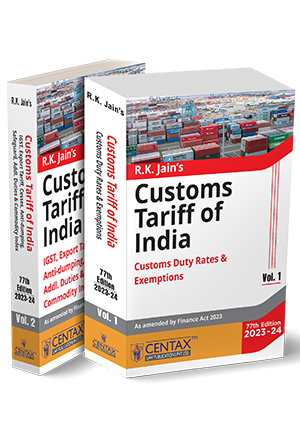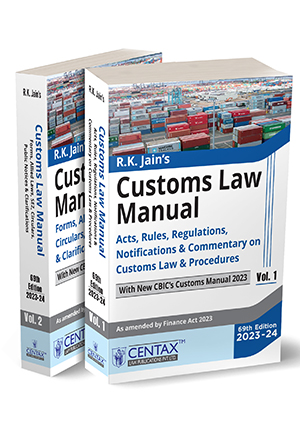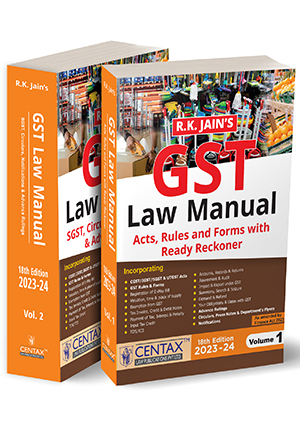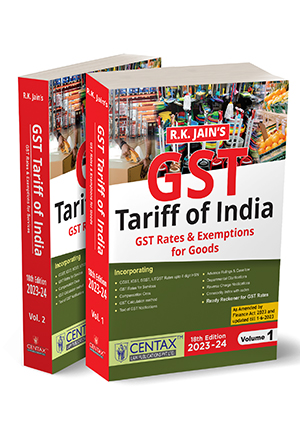Appellate Tribunal Reduced Penalty for Under-invoicing Imports Under FERA as Abetment Charges Lacked Evidence
- Blog|News|FEMA & Banking|
- 3 Min Read
- By Taxmann
- |
- Last Updated on 25 June, 2024
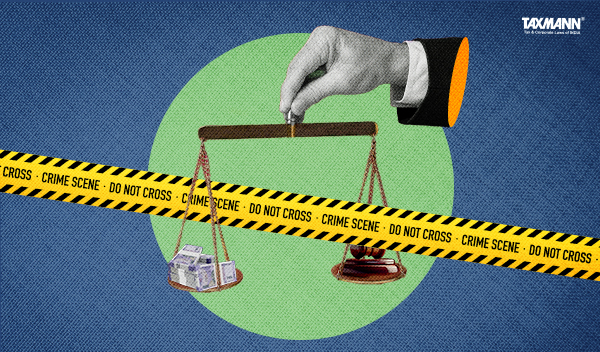
Case Details: Shailesh V Shah v. Directorate of Enforcement - [2024] 163 taxmann.com 648 (SAFEMA-New Delhi)
Judiciary and Counsel Details
-
- Munishwar Nath Bhandari, Chairman & Balesh Kumar, Member
- T. Sundar Ramanathan & Ms Sukanya Viswanathan, Advocates for the Appellant.
- Mahip Datta Parashar & Surender Kumar, Advocates for the Respondent.
Facts of the Case
HC quashes Sec. 138 complaint against CS as complainant failed to prove her involvement in cheque dishonoring
Rashmi Goyal v. Mahalaxmi Fabrics – [2024] 163 taxmann.com 647 (HC – Delhi)
In the instant case, the Respondent company/complainant, engaged in the business of manufacturing Men’s jeans, supplied the said goods to the accused from time to time and raised bills, which were duly received and acknowledged by the accused.
Subsequently, the accused issued certain cheques of varied amounts (subject cheques) to discharge their liability under the bills raised. Upon presentation, the subject cheques were dishonoured, and consequently, criminal complaints under section 138 were filed.
In the said complaints, the petitioner (i.e., the Company Secretary) of the accused company sought to be made vicariously liable for the offence owing to assurances advanced by her regarding the payment of bills raised and the encashment of the subject cheques.
It was noted that nowhere in the complaint, the complainant averred that the petitioner was in charge of, and responsible for the conduct of the business of the accused company.
Further, the phrase ‘in charge of a business’ had been interpreted to mean a person having overall control of the day-to-day business of the company. In the ordinary course of business, it could not be said that the petitioner, who was acting as a Company Secretary, would be in charge of the day-to-day affairs of the accused company, as required in terms of Section 141(1) of the Negotiable Instruments Act, 1881. Thus, the petitioner cannot be vicariously liable under Section 141(1) of the Act.
The High Court held that neither was there any averment that the offence had been committed with consent or connivance of or was attributable to any neglect on the part of the petitioner, which could potentially make her liable under section 141(2) of the Act.
Therefore, the continuation of proceedings against the petitioner would be nothing but an abuse of the process of law. Consequently, the criminal complaint under section 138 of the Act was to be quashed qua the petitioner.
Appellate Tribunal reduced penalty for under-invoicing imports under FERA as abetment charges lacked evidence
Shailesh V Shah v. Directorate of Enforcement – [2024] 163 taxmann.com 648 (SAFEMA – New Delhi)
In the instant case, the ED conducted a search and seizure in the office premises of the appellant’s company, and some documents were recovered. It was observed that the appellant had underinvoiced imported consignments of medicine, and it instructed bank ‘N’ to issue a demand draft in favour of a foreign company from the NRE account of his cousin settled abroad in contravention of section 9 of FERA.
Show cause notices were issued charging the appellant in contraventions of sections 8 and 9 of the FERA for under-invoicing imports of many companies and acquisition of US $ 48,060 for making payment to a company abroad without general or special exemption of the RBI. Also, it was alleged that the appellant abetted banks for the import of certain currency.
The Adjudicating Authority passed the impugned orders against the appellant, holding that charges against the appellant were established. Hence, a penalty of 50 lakhs was imposed, and an amount from the said bank was confiscated.
On an appeal, the appellant submitted that there was no evidence on record to show alleged contraventions as there was nothing on record which brings out that the appellant otherwise received or remitted foreign exchange and he was related to imports of company ‘C’ only.
It was noted that there were evidences on record with respect to under-invoicing of import of consignments handled by the appellant to save customs duty, however, abetment charges were not proved against the appellant as there was no evidence on record to establish that he assisted ‘N’ to indulge in said contraventions.
Further, in view of documents received from ‘N’, charges invoked against the appellant under section 9 of the FERA stood established and, hence, confiscation was not to be intervened with.
Appellate Tribunal Held
The Appellate Tribunal held that since some charges were established to the extent of US $ 1,14,150 only, the amount of penalty imposed was not justified and, thus, the consolidated penalty amount was to be reduced to Rs. 10 lakhs.
Therefore, the impugned order was to be set aside with respect to the appellant in so far as unestablished charges invoked against him and the amount of pre-deposit of penalty was to be refunded. Thus, the instant appeal was to be partly allowed.
Disclaimer: The content/information published on the website is only for general information of the user and shall not be construed as legal advice. While the Taxmann has exercised reasonable efforts to ensure the veracity of information/content published, Taxmann shall be under no liability in any manner whatsoever for incorrect information, if any.

Taxmann Publications has a dedicated in-house Research & Editorial Team. This team consists of a team of Chartered Accountants, Company Secretaries, and Lawyers. This team works under the guidance and supervision of editor-in-chief Mr Rakesh Bhargava.
The Research and Editorial Team is responsible for developing reliable and accurate content for the readers. The team follows the six-sigma approach to achieve the benchmark of zero error in its publications and research platforms. The team ensures that the following publication guidelines are thoroughly followed while developing the content:
- The statutory material is obtained only from the authorized and reliable sources
- All the latest developments in the judicial and legislative fields are covered
- Prepare the analytical write-ups on current, controversial, and important issues to help the readers to understand the concept and its implications
- Every content published by Taxmann is complete, accurate and lucid
- All evidence-based statements are supported with proper reference to Section, Circular No., Notification No. or citations
- The golden rules of grammar, style and consistency are thoroughly followed
- Font and size that’s easy to read and remain consistent across all imprint and digital publications are applied

